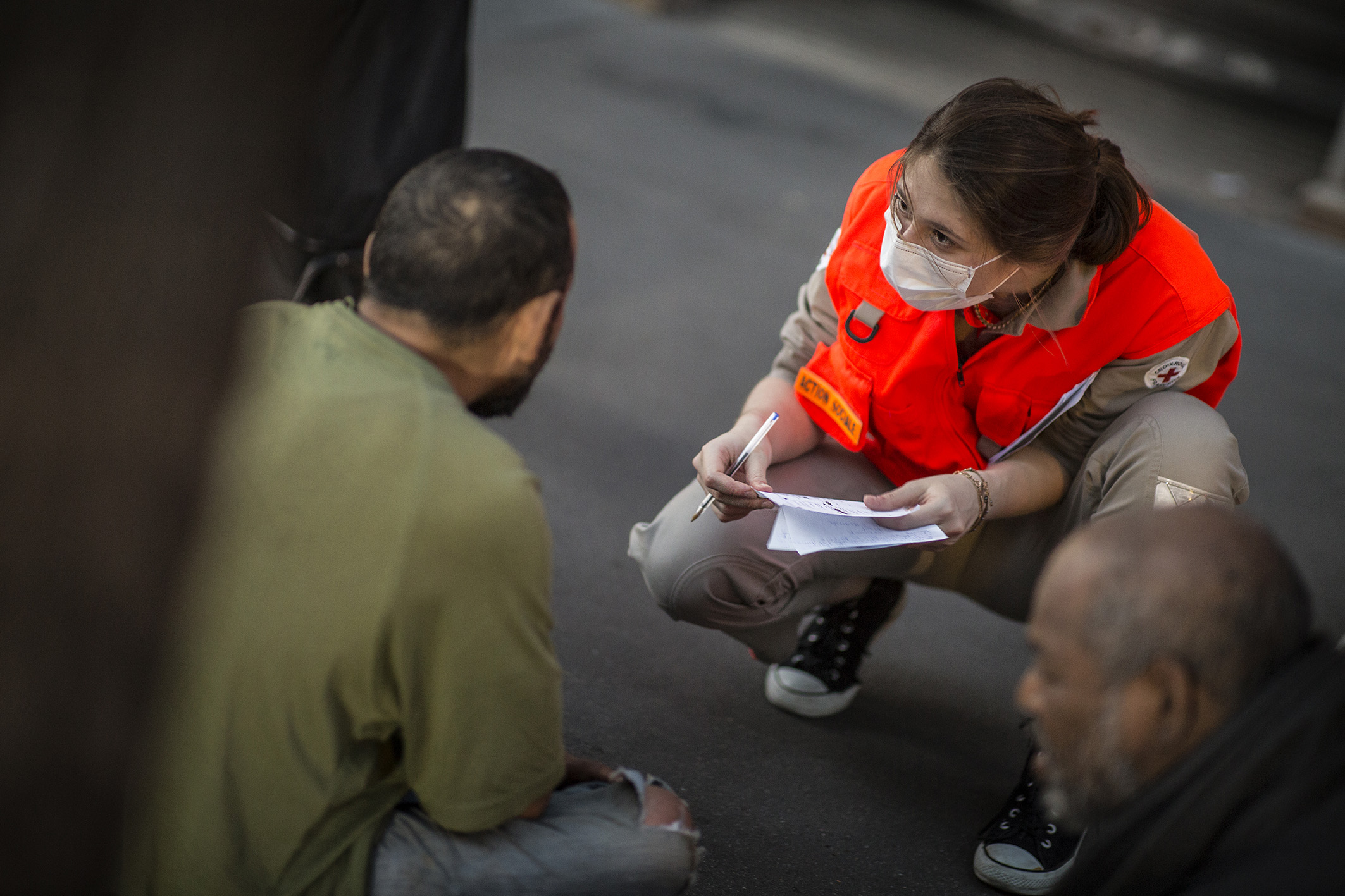Converging Approaches to Combatting Homelessness in Europe
On 8 February, the Red Cross EU Office and the French Red Cross hosted “Converging Approaches: Combatting Homelessness in Europe” - a high-level conference opened by the French Minister Delegate for Housing, Emmanuelle Wargon and the French Red Cross Director General, Jean-Christophe Combe, to discuss the daily obstacles faced by people who find themselves homeless. Sponsored by the French Presidency of the Council of the EU, the event was an opportunity to discuss strategies to help people who are homeless or at risk of becoming homeless through prevention, response, and actions to exit homelessness.
Prevention
The impacts of COVID-19 have made homelessness more visible than ever. During the lockdowns of the first wave of the pandemic, people experiencing homeless were not able to “stay at home”. For people sleeping rough or living in temporary accommodation, COVID-19 and its impacts have represented a tipping point that has placed them at even greater risk of social exclusion and poverty.
The first session of the conference was dedicated to efforts aimed at preventing homelessness. Speakers emphasised the importance of having prevention services that are strongly articulated in national housing strategies, with a focus on supporting people to stay in their homes but also on accompanying people at risk of homelessness. Johanna Saunders, Senior Advisor at the Swedish Red Cross, showed the importance of integrated approaches. She stressed the vital role they play in preventing further social exclusion and homelessness among unaccompanied minors in Sweden by allowing different services to identify, work together and support people who are at risk of homelessness. “It is really important to work with counselling and training activities so that people feel empowered and get the strength needed to take new steps in life” Ms Saunders underlined. Likewise, policy frameworks and public budgets should support a joined-up approach amongst different services to prevent homelessness and address its causes.

“Homelessness usually does not happen suddenly or unexpectedly. It often results from a combination of personal circumstances and structural issues which exacerbate or perpetuate the situation. That is why an integrated, person-centred values-based approach to solving this crisis is so important, as well as tackling the systemic issues which make it difficult to provide the support needed,” said Christian Fillet, Chair of the European Social Network.
Response
Referral to accessible health services is crucial to prevent major health problems among people who are sleeping in the streets. It is essential that services addressing the immediate needs of people in precarious situations receive adequate funding to perform what is often lifesaving work.
During the conference’s second session, “Responding to the needs of people experiencing homelessness”, Malik Berkani, French Red Cross regional director for the fight against exclusion in the Gard region, highlighted the importance of building trust with people who are homeless in orderto facilitate their access to services and guide them towards more sustainable housing solutions. “Access to services should always be offered without discrimination to ensure that accommodation, social protection, and psychosocial and material assistance reaches everybody in need”, he underlined. Through its proactive outreach work, the French Red Cross helps people without a home to access essential services and support, while working with them to provide accommodation over the medium to long term.

Exiting
Affordable and stable housing is the end goal of any reintegration process, particularly for people with complex support needs who tend to move through different residential services before being re-housed. Consistent and long-term funding needs to be ensured so that people can afford to keep their homes and adequate services are offered to them. Chiara Borio, Senior Officer for Social Inclusion at the Italian Red Cross, presented their Housing First project, as an example of a successful rapid re-housing solution which enables housing autonomy and strengthens social inclusion. The local branch of Benevento has offered stable and affordable housing to 15 people by using EU funding to cover rental payments (European Social Fund) and utilities (Fund for European Aid for the most Deprived). Housing first – a model that advocates for systemic change in the current approach to supporting people experiencing homelessness – is a fundamental innovation that should be part of an integrated homelessness strategy. It places accessing affordable and stable housing at the start of the integration process and not as the end goal. As a model, it should not work in isolation, but alongside prevention measures and other forms of support for homeless people.
“We need to end homelessness management through the use of shelters and move towards housing-led solutions”, said Freek Spinnewijn, Director of the European Federation of National Organisations working with the Homeless (FEANTSA).
Looking forward
The European Platform on Combatting Homelessness (EPOCH) gathers representatives from civil society organisations, EU governments and the European institutions (namely the European Commission and the European Parliament). In 2022, the platform should continue to channel mutual learning exchanges for public authorities and non-for-profit organisations to learn from each other's good practices. These proven policies and practices should be the basis on which holistic national homeless strategies are developed. “The platform is an opportunity for Member States to cooperate and offer expertise in creating homeless strategies”, said Mr. Jan Vrbický, Czech Deputy Minister of Housing.
“Investment in the social services sector to address homelessness is fundamental”, concluded Mette Petersen, Red Cross EU Office Director. Combatting homelessness requires that not-for-profit actors, such as National Red Cross Societies, have access to stable and adequate funding. Katarina Ivankovic-Knezevic, Director for Social Rights and Inclusion in DG Employment, Social Affairs and Inclusion of the European Commission underlined in her closing remarks “Funding is not important, it is crucial.” National Red Cross Societies have built trust with people who are homeless following their long-term experience and case-based knowledge providing integrated, holistic and sustainable frontline assistance and services.
For media inquiries, please contact Eva Oyón on: eva.oyon@redcross.eu or +32 2 235 09 22

